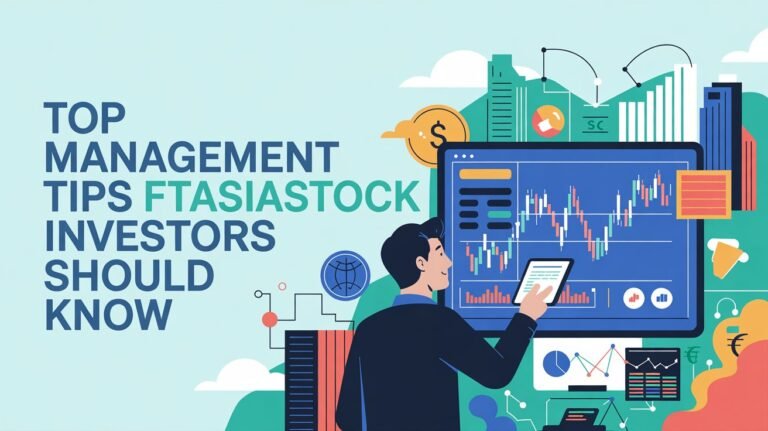When to Get a Debt Consolidation Loan: The Smartest Move to Crush Debt Fast
Understanding Debt Consolidation Loans
A debt consolidation loan is a financial tool designed to help individuals manage multiple debts by combining them into a single loan with one monthly payment. Instead of juggling credit card balances, medical bills, and personal loans with varying interest rates and payment schedules, a debt consolidation loan offers simplicity and potentially better terms. Typically, people use these loans to pay off high-interest debt, particularly credit card debt, with the aim of lowering overall interest costs and making repayment more manageable. The consolidated loan often comes with a fixed interest rate and a structured repayment period, giving borrowers a clear timeline to become debt-free.
Table of Contents
Signs You Might Need a Debt Consolidation Loan
Knowing when to consider a debt consolidation loan is crucial. If you’re struggling to keep up with multiple debt payments, constantly shifting balances from one card to another, or only making minimum payments without making a dent in your principal, these are red flags. High interest rates that lead to ballooning balances despite regular payments are another warning sign. If you’re frequently using one form of credit to pay off another or have missed payments due to confusion or lack of funds, consolidation could offer relief. A consolidation loan can bring structure, reduce stress, and potentially save you money if managed properly.
Evaluating Your Financial Situation
Before you pursue a debt consolidation loan, take a hard look at your financial situation. List all your debts, including balances, interest rates, minimum payments, and due dates. Then, analyze your income, monthly expenses, and cash flow. Are you spending more than you earn? Is your debt-to-income ratio high? A good rule of thumb is to aim for a debt-to-income ratio below 36%. If you’re above that threshold, consolidation may help, but it also signals a need to reassess your spending habits. You need to ensure that a consolidation loan won’t just delay the problem. It must be part of a broader strategy to regain control over your finances.
How Debt Consolidation Loans Work
Debt consolidation loans are typically unsecured personal loans offered by banks, credit unions, or online lenders. Once approved, the loan funds are used to pay off your existing debts, leaving you with one loan to repay over a fixed term. The key benefit is simplification—one payment, one interest rate, one due date. This can significantly reduce the mental load and increase the likelihood of on-time payments. Interest rates are based on your creditworthiness, so having a decent credit score helps secure a better deal. Loan terms can range from one to seven years, and monthly payments depend on the amount borrowed, interest rate, and term length.
When a Debt Consolidation Loan Makes Sense
A debt consolidation loan is a smart choice when it reduces the overall cost of your debt. For example, if your credit card debt is charging 20% interest and you qualify for a loan at 10%, you’re saving a lot over time. It’s also helpful if you have a stable income and can commit to fixed monthly payments. Consolidation can prevent missed payments, late fees, and the stress that comes with managing multiple accounts. It can also provide a psychological boost—the progress toward being debt-free feels more tangible when you’re focused on one loan instead of many. If the math checks out and you’re ready to commit to a plan, consolidation can be a game-changer.
When a Debt Consolidation Loan Might Not Help
Debt consolidation isn’t a magic fix. If your debt stems from chronic overspending or lack of budgeting, a consolidation loan won’t solve the root issue. In fact, it might make things worse if you continue to rack up new debt after consolidating. Also, if your credit score is low, you may not qualify for a loan with favorable terms, which could lead to higher costs in the long run. In some cases, the fees, interest, or penalties associated with the loan might offset any savings. And if the loan extends your repayment period too far, you could end up paying more in total interest—even if the monthly payment is lower.
Comparing Alternatives to Debt Consolidation Loans
Before choosing a debt consolidation loan, consider other options. A balance transfer credit card with 0% introductory APR can be a great short-term solution if you can pay off the balance during the promotional period. Credit counseling services can help you create a debt management plan without taking out a new loan. Home equity loans or lines of credit may offer lower interest rates, but they put your home at risk if you default. Bankruptcy is a last resort, but it’s sometimes necessary. Every option has pros and cons, so it’s important to compare them in light of your personal financial goals and discipline level.
How to Choose the Right Loan
If you decide a debt consolidation loan is right for you, shop around. Compare interest rates, fees, repayment terms, and lender reputations. Use online calculators to understand how much you’ll save—and what you’ll pay monthly. Look at the annual percentage rate (APR), not just the interest rate, as it includes fees. Make sure you understand the terms: Are there penalties for early repayment? What happens if you miss a payment? Read reviews and check for red flags like aggressive marketing or unclear terms. A good lender will be transparent and willing to answer questions. Don’t rush—this is a commitment that affects your financial future.
The Role of Credit in Debt Consolidation
Your credit score plays a major role in whether you qualify for a debt consolidation loan and what terms you’ll get. Lenders assess your credit history to determine risk. A higher score means better chances of approval and lower interest rates. If your credit is poor, it may be worth improving it before applying. Paying bills on time, reducing credit utilization, and disputing inaccuracies on your credit report can boost your score. Some lenders offer prequalification tools that allow you to see your estimated rate without affecting your score. Take advantage of these tools to shop wisely and plan ahead.
Staying on Track After Consolidation
Getting a debt consolidation loan is just the start—you still have to stay disciplined. Create a budget that accounts for your new monthly payment and stick to it. Avoid accumulating new debt. Set up automatic payments to avoid late fees. Track your spending and check your progress regularly. Celebrate milestones to stay motivated. If you’re serious about financial freedom, use consolidation as a stepping stone, not a crutch. It’s also smart to build an emergency fund so you’re not forced into new debt if unexpected expenses arise. The goal is not just to pay off debt, but to change the habits that led to it.
Final Thoughts: Is a Debt Consolidation Loan Right for You?
A debt consolidation loan can be a powerful tool, but it’s not for everyone. The right time to get one is when your total debt is becoming unmanageable, but you still have a steady income, a reasonable credit score, and the determination to change your financial behavior. It can lower your interest, simplify your payments, and give you a clear path out of debt. But it requires planning, discipline, and a realistic assessment of your financial habits. If used wisely, it’s a step toward freedom—not a shortcut, but a structured path to a debt-free life.
For more on managing your finances and making smart investment decisions, see our post on Top 10 Management Tips FTAsiaStock Investors Should Know.







